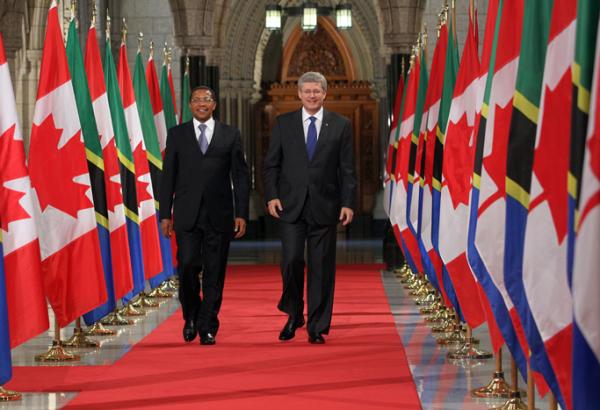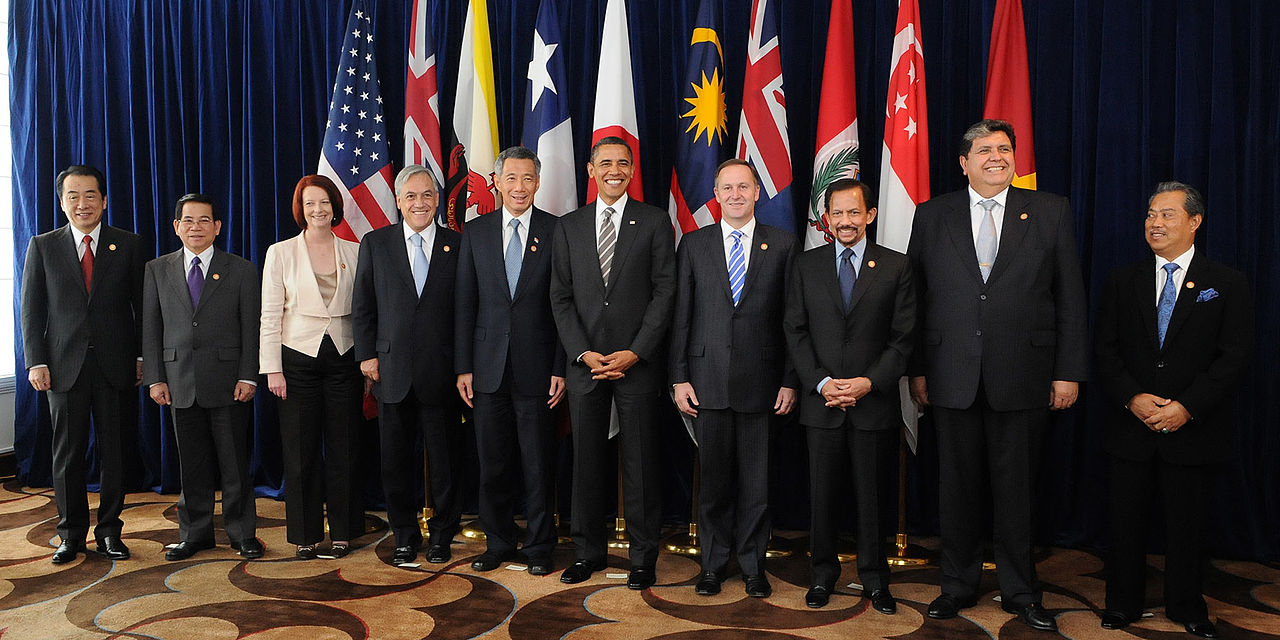
Praising Tanzania as a model of progressive governance and an economic growth leader in Africa, Prime Minister Stephen Harper announced on October 4th that Canada and Tanzania had reached an accord on a bilateral Foreign Investment Promotion and Protection Agreement (FIPA) during Tanzanian President Jakaya Kikwete’s first state visit to Canada. Canada has completed 13 FIPAs since 2006 with another 13 agreements presently in ongoing negotiations.
“This new agreement with Tanzania will encourage investment between our two countries and better-protect Canadians that do business in Tanzania,” Harper said. Canadian mining companies are among the biggest foreign investors in the country. A FIPA is designed to provide investors with greater confidence by creating a barrier against discriminatory and arbitrary practices, a position the Canadian government has regularly supported.
A related announcement on the same day noted two new development initiatives pertaining to the mining industry in Tanzania with Canadian backing. The first project will be a 5-year $2.75million investment known as the Extractive Industries Transparency Initiative. It seeks to compel mining companies and the government to publish a transparent account of costs and expenditures. A further $2.9million would be allocated over 5 years to the Tanzania Minerals Audit Agency to “create a more reliable and accurate system of auditing revenue and environmental practices in the industry.”
The Tanzanian government for its part has recently issued new fees on prospecting licenses of two to three times the previous amount charged, from $50-100 to $200-300 for investors and mining sector stakeholders. This had led to a fear that local independent operators might be driven out of business, but is more likely an early attempt to impose authority on an otherwise largely unregulated industry.
Pierre Gratton, president of the Mining Association of Canada applauded the FIPA, saying that “Tanzania is already considered to be a fairly attractive place to invest.” Yet dissenting voices from Mining Watch Canada have come forward saying conversely that the new agreement would “create more environmental and human rights problems,” as mining companies explore environmentally unstable areas and tribal regions. This would not be the first time Canadian mining companies were involved in controversial practices in the developing world.
Canada-Tanzania relations were started in 1961 upon the latter’s independence from the UK. Canada maintains a High Commission in Dar es Salaam, the country’s principal city and formerly the capital until 1996. The two countries are frequent collaborators at the United Nations and in the Commonwealth.
The Tanzanian economy is predominately agricultural with 75% of the population employed in the sector. Vast quantities of minerals and fossil fuels have been discovered and Tanzania is the third largest producer of gold in Africa after South Africa and Ghana. Gold represents 90% of all mineral exports. Uniquely Tanzania also produces the blue coloured precious gemstone Tanzanite.
The Tanzanian Ministry of Mining projects the mining sector to account for 10% of total GDP by 2025, up from 3.8% currently. Total Canadian mining assets in Tanzania amounted to $2.3billion as of 2011 and the potential for growth is increasingly high, particularly in the areas of mining, and oil and gas with recent offshore discoveries.
As one of the Canadian International Development Agency’s (CIDA) eight countries of focus in Africa, Canada has contributed upwards of $1billion in Official Development Aid (ODA) to Tanzania since independence. In 2011-12 CIDA increased development assistance to $119million, reflecting a major expansion from a mere $9.8million only eight years earlier. CIDA programmes mainly deal with “achieving broad-based, equitable and sustainable growth, while focusing on improved opportunities for the poor, improved access to public services and strengthened good governance.”
Another area of relevance to Canada has been Tanzania’s active role under the African Union-United Nations Mission to Darfur, Sudan (UNAMID) with a deployment of 800 troops. In September Tanzania was also selected to join in a 4000 strong AU intervention force along with Kenyan, Angolan and DR Congo troops to pacify rebels in Eastern DR Congo. Tanzania is also a member of the East African Community. Canada is a contributor to the Tanzanian Peacekeeping Training Centre which builds Tanzania’s capacity to train and deploy peacekeepers throughout the continent.




